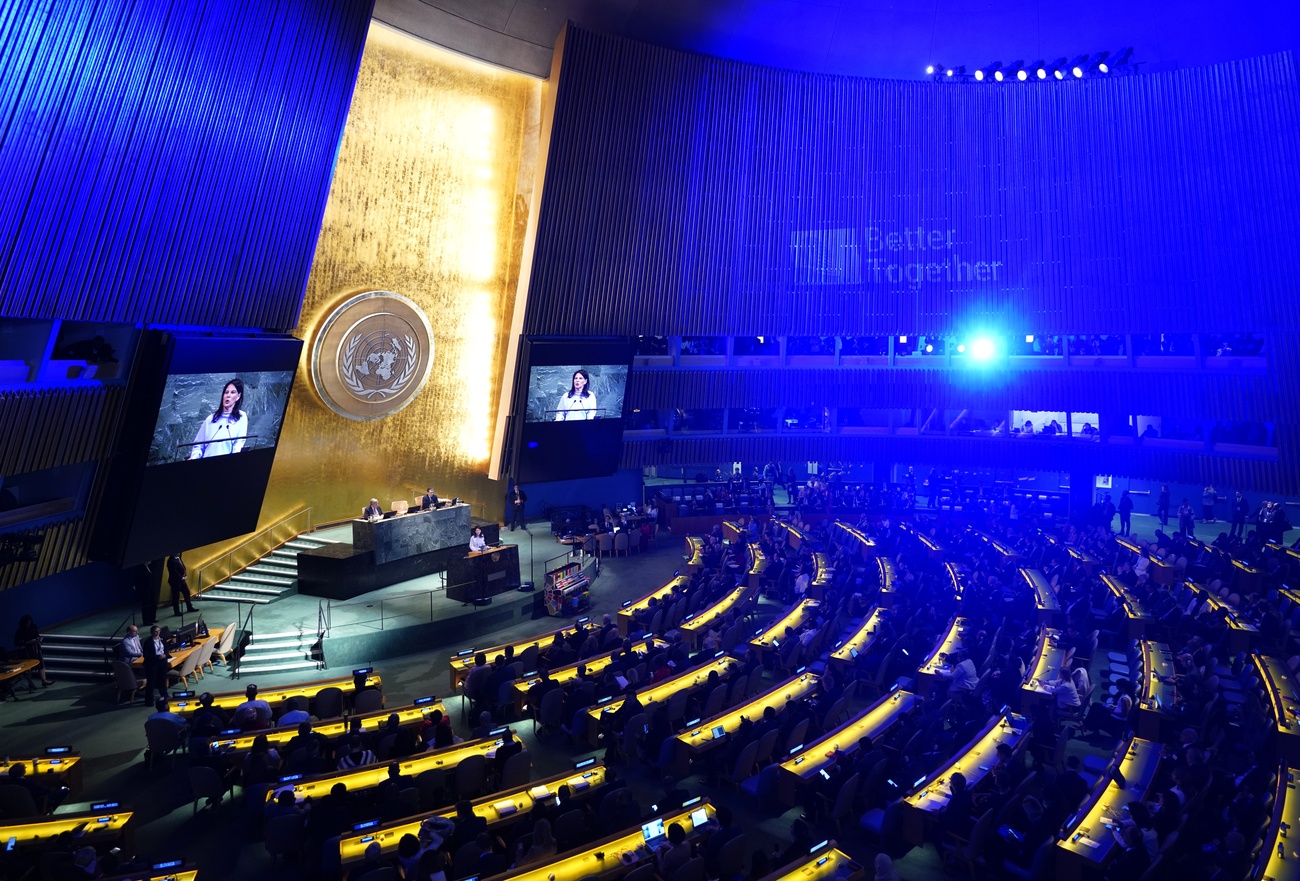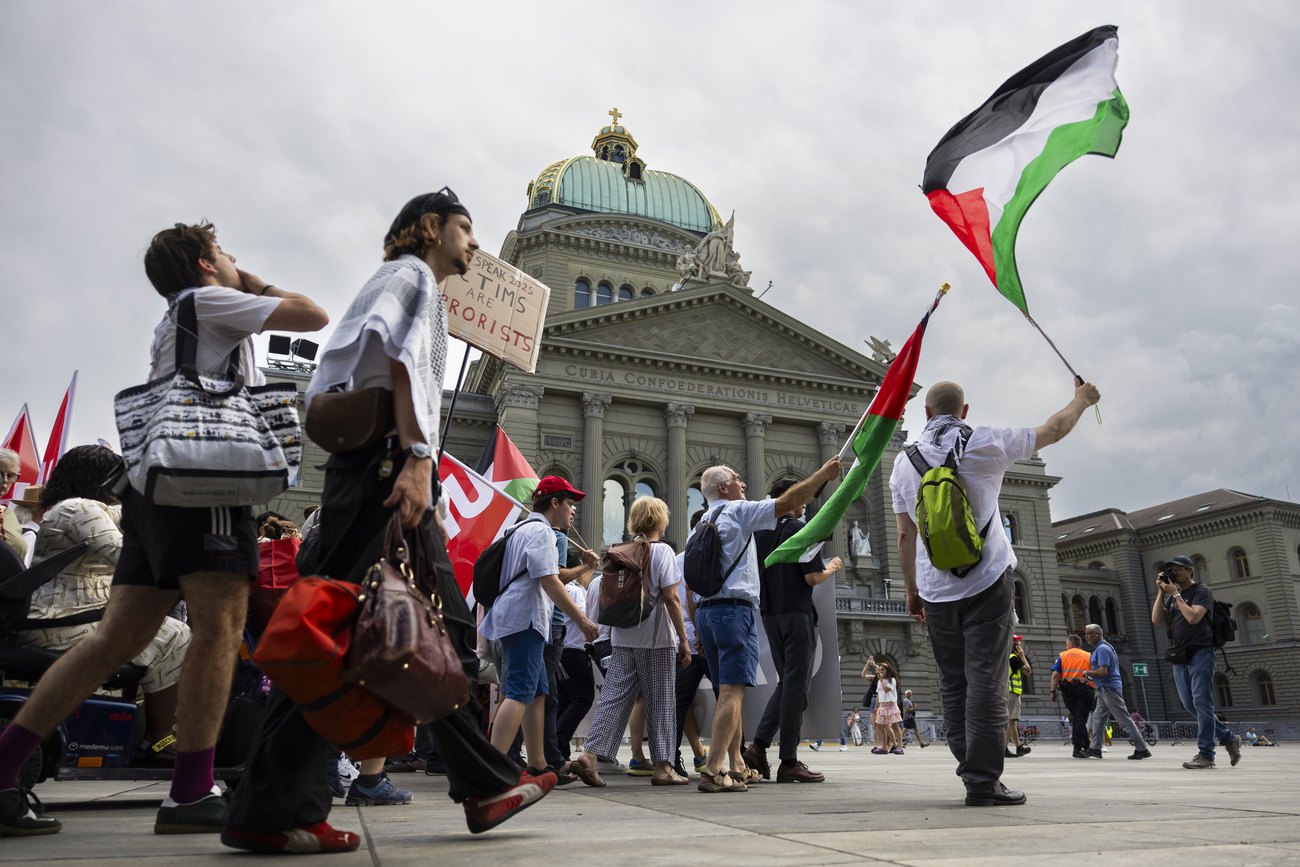
Weapons trade rules ‘need global cooperation’

Swiss President Johann Schneider-Ammann has called on all signatories to the Arms Trade Treaty (ATT) to work together to ensure that global rules are followed in the sale of weapons and munitions.
Opening the second conference of the ATT in Geneva on Monday, Schneider-Ammann emphasized that the job of implementing the deal is now at hand following a first administrative phase to get it underway. World military expenditure rose 1% to reach $1.7 trillion (CHF1.6 trillion) in 2015, according to the Stockholm International Peace Research Institute.
Switzerland is one of 130 countries that have signed up to ATT and in April of last year became one of 85 to put it into force. The internationally binding rules on the cross-border trade of conventional weapons was adopted by the United Nations General Assembly in 2013.
Swiss exports of war material dropped 21% last year to CHF446.6 million, but rebounded 3% in the first half of 2016, notching CHF224 million for arms manufacturers. Switzerland produces a broad range of military hardware, ranging from handguns to explosives and armoured vehicles.
Switzerland has assumed the seat of the ATT secretariat this year, with Geneva hosting the annual event to promote transparent arms trading that respects the rule of international law. Schneider-Ammann said that civil society has an important role to play in regulating the cross-border sale of weapons and munitions.
“Civil society supports us and gives us constructive criticism on the treaty and its implementation,” he said.
NGOs have in the past been critical of Switzerland’s role in the global arms trade. The government has been previously accused on opaqueness after Swiss-made weapons ended up in different countries than they were supposed to.
Switzerland clamped down on sales of weapons to the Middle East and northern Africa in recent years following outbreaks of social unrest and civil war. Some of those restrictions have been partially lifted in the last few months.
“Since the treaty came into force, Switzerland has worked closely with the countries and regions most affected by the illegal trade in small arms, and we will not relax in our efforts,” Schneider-Ammann said.
“It is clear that countries cannot achieve the aims of the treaty individually. Collaboration is essential if ATT is to be effective.”
According to the annual Small Arms Survey, compiled by the Graduate Institute in Geneva, Switzerland is the third most transparent country in the weapons trade. It lost its top ranking this year for the first time since 2007 in the independent survey.

In compliance with the JTI standards
More: SWI swissinfo.ch certified by the Journalism Trust Initiative


























You can find an overview of ongoing debates with our journalists here . Please join us!
If you want to start a conversation about a topic raised in this article or want to report factual errors, email us at english@swissinfo.ch.